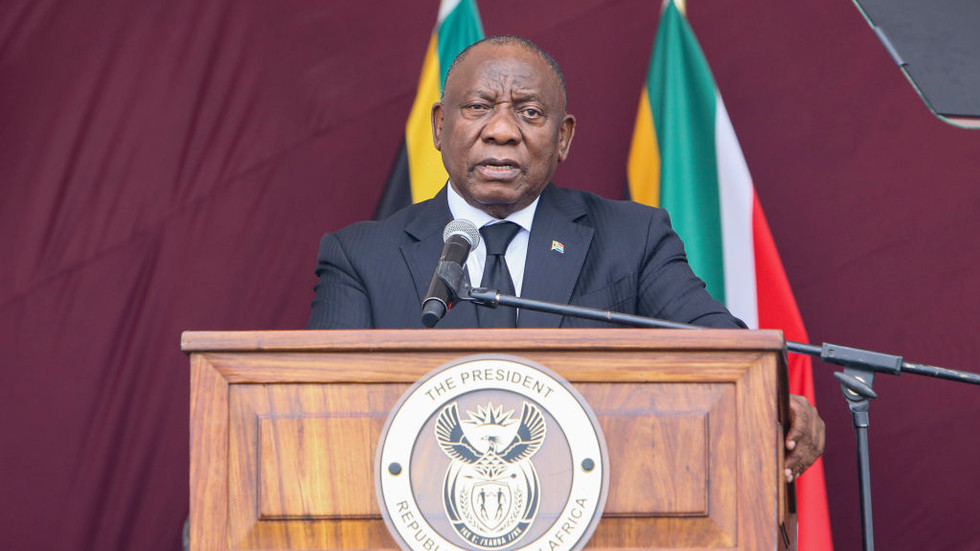Malawi's fight against corruption faces yet another challenge. Anti-Corruption Bureau (ACB) Director General Martha Chizuma has announced that she will not renew her contract when it ends on May 31, 2024.
Chizuma, the first female director of the ACB, has experienced a number of setbacks during her four-year tenure. Last year, she was temporarily suspended over a leaked audio clip in which she suggested high-ranking officials were obstructing justice. Malawimedia reported that Chizuma's suspension came just hours before the bureau planned to issue arrest warrants for top officials.
Many Malawians feel Chizuma was not adequately supported or protected by authorities and feel she did what she could."We know corruption it's a very difficult battle to actually win because so many networks of people and politicians are involved" Blantyre-based citizen Lockingtone Gondwe told DW that. "There is thriving corruption in our country, especially in the public sector…and this is worrisome, because the public sector offers a lot of services to Malawians." Gondwe says that with the foundation Chizuma laid, someone else can now "take over and concentrate on areas she might have not done well."
 Chizuma created the Whistleblower Protection Act and established the Anti-Corruption Sourcebook for use in primary schools.
Image: Amos Gumulira/AFP/Getty Images
Chizuma created the Whistleblower Protection Act and established the Anti-Corruption Sourcebook for use in primary schools.
Image: Amos Gumulira/AFP/Getty ImagesNot an easy tenure
During her time in office, Chizuma arrested former ACB director Reyneck Matemba and Malawi'scurrent vice president, Saulos Chilima on corruption allegations before the state threw out the case, saying there was no evidence.
The 2023 Corruption Perceptions Index by Transparency International ranks Malawi as 115 out of 180 countries — suggesting the country has work to do in the battle against corruption.
Doubts about the country's future loom large. Jane Kumwenda, a mother of four, told DW she was unsure if the more than 119 cases with investigations that took place during Chizuma's tenure would ever be solved.
A teen innovator brings light to his village
Future attempts to fight graft
The country's youth is most affected by rampant corruption, according to national population statistics. Fryson Chodzi, a youth advocate, said young people are eager to know what the future holds when it comes to the country's battle against corruption.
"We don't even know who is going to be her replacement and what standards they will set in terms of fighting corruption in Malawi," Chodzi told DW. "It is our hope that the replacement will be found and will be a person with character and integrity to start from where Martha Chizuma has left off.”
Meanwhile, chairperson of the National Advocacy Platform, Benedicto Kondowe, along with other activists, has made five demands to the authorities meant to stop Malawi from sliding into impunity and grand corruption.
The points outline the need for a new director to be appointed immediately, for the institutional independence to be achieved, for the enhancement of oversight mechanisms, and for more public engagement — as well as increased international support and collaboration.
"We must ensure that the selection process of the new director general is apolitical so that all competent people are given the opportunity to apply and be interviewed" Kondowe told DW.
Kondowe and his colleagues also call for "sustained investment" for the ACB to "guarantee the bureau's operational and financial autonomy" and avoid political interference. Kondowe said he hopes increasing public engagement will hold the bureau more accountable.
 Chizuma arrested former ACB director Reyneck Matemba and Malawi's current vice president, Saulos Chilima on corruption allegations Image: Amos Gumulira/AFP/Getty Images
Chizuma arrested former ACB director Reyneck Matemba and Malawi's current vice president, Saulos Chilima on corruption allegations Image: Amos Gumulira/AFP/Getty ImagesChizuma's next move
Other Malawians interviewed by DW questioned whether the country was heading in the right direction considering the national budget for 2024-2025 does not stipulate how much money will be allocated to the Anti-Corruption Bureau.
So far, Chizuma has not revealed what role she will pursue when she leaves her position but said resting will be a priority after the hectic tenure. "I think the first month I want to recover and find the Martha who was the Martha before June 1, 2021, because I need her back."
In April, Malawian media reported that her efforts to negotiate the renewal of her contract had been unsuccessful.
Chizuma, who worked as Ombudsman before her appointment by President Lazarus Chakwera, is credited with enacting the Whistleblower Protection Act and establishing the Anti-Corruption Sourcebook for use in primary schools.
This article was edited by Sarah Hucal

 5 months ago
31
5 months ago
31









